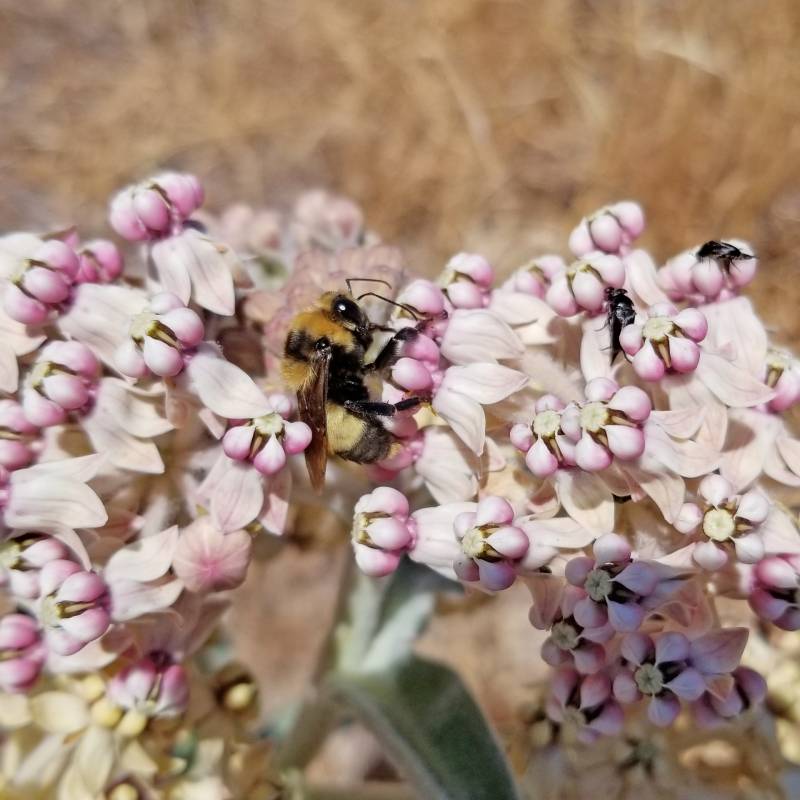Environmentalists are backing state wildlife officials in a legal dispute over critically threatened bumblebees.
In June 2018, the California Fish and Game Commission listed four species — crotch, Franklin’s, suckley cuckoo and western bumblebee — as candidate species for protections under the state Endangered Species Act.
A few months later, the California Farm Bureau Federation and six other agricultural associations sued the state over that decision. They argue that the the law cannot protect the bees because it defines candidate species as “bird, mammal, fish, amphibian, reptile or plant” and does not directly mention “insects.”
If California listed the bees as endangered species it would set a harmful precedent for farmers and ranchers, they say.
Xerces Society for Invertebrate Conservation, Defenders of Wildlife and the Center for Food Safety filed a motion to intervene last month. Those groups seek to defend the state’s decision.
